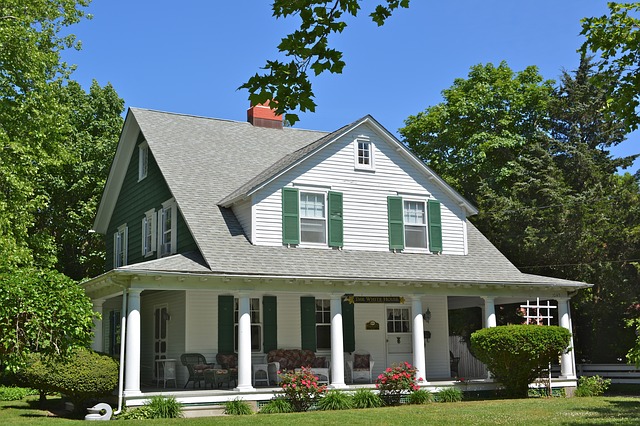When you buy a unit in a newly-built condominium directly from a developer, Ontario’s Condominium Act gives you specific protections.
Buyer’s protections
- when you buy a newly-built condo, you have the right to cancel the purchase within a 10-calendar day cooling-off period (the clock on this 10-day period starts from the time you receive a copy of the fully signed purchase and sale agreement or the disclosure statement, whichever comes later)
- you also have the right to cancel a sales agreement within 10 days after any “material change” (e.g., a significant change) to the disclosure statement
- if you exercise your right to cancel, the developer must refund any deposit plus any interest that may be payable
- if you make a deposit, the developer must make sure that it is held in trust
- a developer can’t terminate your purchase and sale agreement without your consent or a court order
- like all new home purchases, newly-built condo units are covered by the Ontario New Home Warranties Plan Act, which is overseen by Tarion Warranty Corporation
Buying a newly-built condo does not mean you should skip getting a home inspection (it will help you make an informed decision and understand a home’s condition and value).
Developer’s obligations
Developers must:
- take all reasonable steps to finish the condo project on time (you may have a right to compensation if your condo closing is unreasonably delayed)
- register the legal documents that are needed to set up the condo corporation without delay
- provide you with a disclosure statement
Disclosure statement
The developer must provide you with a disclosure statement that includes:
- a general description of the property (e.g., the land and buildings perimeters and unit boundaries)
- the number of units the builder intends to lease — if a builder intends to keep ownership of a block of units, he or she will also become a unit owner and can have control over some affairs of the condo corporation (the Condominium Act does not set limits on the number of units a single purchaser can buy)
- estimated start and end dates for the construction of amenities that are not completed
- the condo corporation’s current budget — the developer has to release the estimated revenue and expenses for the first year of operation, and should show costs for things like staff, maintenance and utilities (this information will allow you to plan for your monthly condo fees in that first year and monthly condo fees can increase if the developer defers some expenses and does not include them in the first-year budget)
- the condo declaration — contains the condo’s fundamental rules, sets out the definition of units and common elements (including percentage owned by you), and shows how much each owner must pay in monthly condo fees
- condo by-laws, rules and restrictions — they will set out any restrictions on how you can use your unit or the common elements (e.g., they may restrict the size or number of pets, the colours you can use for shades/blinds, require you to file certain documents with the corporation if you want to rent your unit)
Condo fee increases
New condo owners are sometimes unpleasantly surprised by large increases in condo fees. These increases can occur during the 2nd or 3rd year of ownership.
For example, fees to cover the cost of certain amenities, like a guest suite that a corporation may have to buy as an asset, might not take effect until year 2. Before you buy, find out if there will be any deferred costs and make sure that you can handle a rise in monthly condo fees.
Developers estimate monthly expenses in the disclosure statement. However, it isn’t until the board of directors takes over — and conducts the first reserve fund study — that you begin to know the true costs of maintaining the building.
Condo insurance
Owners need to understand how a corporation’s insurance coverage works because the cost of damage and repairs could be significant. This may help you determine if you would like to get your own the insurance coverage.
If these by-laws are not in place they can be passed later, but will require approval of a majority of owners. This can be hard to get.
Before you buy
Here are questions that buyers of newly-built condos should discuss when reviewing the condo budget and disclosure statement with their lawyer, real estate agent or accountant:
- How might my condo fees increase in the second fiscal year of the condominium corporation?
- Are there any deferred condo costs and will this result in a fee increase to condo owners? (e.g., will the condominium corporation have to buy an amenities unit like a recreation centre where costs don’t kick in until the 2nd fiscal year?
- Do the condo fees seem comparable to other buildings of the same size and with similar amenities?
- Are all utilities for the unit included in the maintenance fees? (if they are not, they will be an additional expense that you will need to budget for)
- Is the reserve fund contribution for the 1st year only at 10% of the corporation’s budget for the 1st fiscal year? (this is the bare minimum. It also means the reserve fund contribution may have to be increased fairly quickly in the 2nd fiscal year. This could affect your condo fees.)
- How many units does the developer intend to own and lease? (at owners’ meetings, an owner gets one vote for each unit that he or she owns)
- Are there any restrictions for owners looking to rent their units? (some corporations may have some restrictions on renting condo units)
- Did the builder put in place a standard unit by-law and an insurance deductible chargeback by-law? (they may spell out how the condo corporation’s insurance works when there is damage to your unit, to other units or the common elements that originate from your unit)
Updated: December 14, 2015
Source: https://www.ontario.ca/page/buying-condo-newly-built#2



















